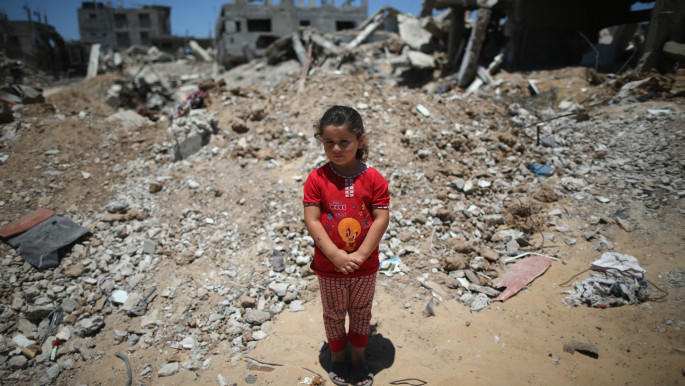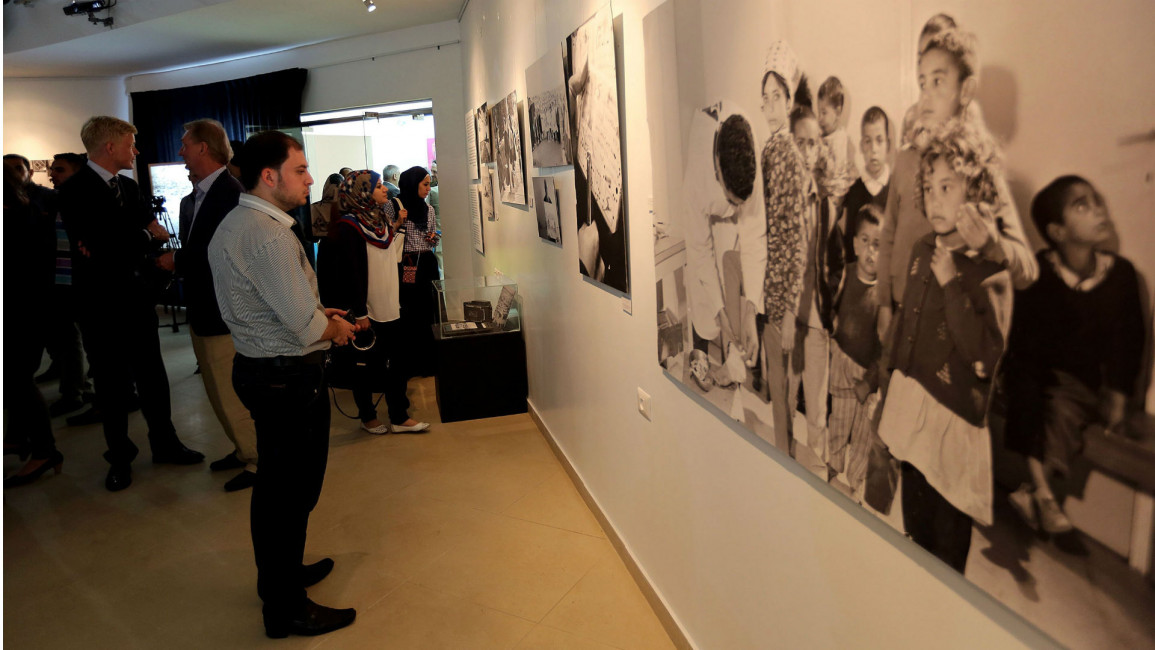
The Nakba profiteering cliques
The Palestinian refugee "problem" was created and continues to exist as a result of the political conditions shaped by the will of a triumvirate of players.
Dominant world powers, especially the United States and Western European countries, see no urgent need to find a solution along the lines proposed in UN General Assembly resolution 194, which was adopted in 1948 and states that refugees should be allowed to return home, and be given compensation for losses and hardships suffered in exile.
Israel, the perpetrator of the ethnic cleansing known as the Nakba, considers the realisation of the right of return as the end of the Zionist project and the Jewish state itself.
The third player is the great mass of refugees. While it has no political leverage on individual levels, its existence as a distinct group of people dwelling in refugee camps makes it difficult for the hegemonic Palestinian leadership to compromise on the issue.
It is this group which is most affected by Nakba profiteering.
How to understand profiteering?
The word refers to the practice whereby seemingly unfair profits are made through exploiting certain conditions of vulnerability.
Profiteering does not necessarily involve manipulative or corrupt activities, but can simply occur by virtue of being in the right place at the right time.
It cannot, however, be understood without the concept of professionalisation. This approach involves a recognition of an individual's work - and worth - as part of some corporate body, and the institutionality that follows.
Nakba profiteering cliques are clusters of professionals using this approach to consider the problem of the ethnic-cleansing of the Palestinians in the Nakba.
The professional approach, on an institutional level, attempts to de-politicise the Nakba, while objectifying it, alowing it to be treating within the management framework of any regular business project.
| The Nakba profiteers are groups with established vested interests which live off the plight of the refugees. |
The great international powers have invested a great deal of time, money and institutional arrangements on addressing the "apolitical" needs of managing the Palestinian refugee problem.
Humanitarian relief agencies, and their so-called "development and empowerment" programmes have created the framework and conditions suitable for many social groups to profit from the misery of the Nakba.
The Nakba profiteers are groups with established vested interests which live off the plight of the refugees.
They can be categorised into four interconnected sets; international organisations, NGOs and their related community-based organisations, academic entities - instructors and students, and Palestinian political factions represented by their local and national leaderships.
International organisations
Bundles of international organisations were the first groups to establish vested interests while managing refugees' needs. Their main aim is to maintain refugees' material standards of living to an appropriate level.
The foremost of these is the United Nations Relief and Works Agency (UNRWA), which is a direct provider of services to refugees.
UNRWA employs more than 30,000 people, including 28,000 Palestinians, and has a two-year budget of $1.4 billion for 2014-15. A large percentage of this comes from Western European and North American countries on a voluntary basis - which enables them to indirectly influence UNRWA policies.
For UNRWA to sustain its funding it has to maintain the principle of neutrality, which really means maintaining the status quo.
| For UNRWA to sustain its funding it has to maintain the principle of neutrality, which really means maintaining the status quo. |
To enable this, the decision-making ranks and most middle-line administrators are comprised of international staff assisted by local middle class personnel.
The managerial ranks have developed vested interests, including high salaries and generous perks based on UN standards.
UNRWA has, however, been suffering chronic budget shortages - though these tend not to affect the higher management ranks. Funding shortfalls almost always seem to lead to cuts in services to refugees.
NGOs and Community-based organisations
Coteries of non-governmental organisations (NGOs), both local and international, operate in the field of development and empowerment of Palestinian communities - including refugees.
In general, NGOs work on a project-to-project basis within a limited time span. This approach tends to lack any comprehensive national planning since it does not seek to support the whole society, preferring something of a piecemeal approach instead.
And because of limited resources and managerial traditions, NGOs and community-based organisations work as insular cults - thus limiting the number of individuals who benefit from their operations.
This can be explained by the fact that NGOs are accountable only to their donors, and local participation in planning, implementation, and monitoring is merely procedural. In reality, the relationship between NGOs and the people they ostensibly aim to serve is based on simple clientelism.
The negative side of NGOs' work is that, instead of social empowerment and integration, such projects may lead to a social dissociation by creating a latent conflict between those who benefit and those who do not.
 |
|
| Gaza's economy is collapsing as the status quo is maintained [AFP] |
Furthermore, NGO personnel, especially in international NGOs, enjoy high salaries in comparison with average local wages, which give them economic privileges and prominent social status.
In local NGOs, pilfering is reportedly pervasive - but NGOs justify such behaviour by "covering the administrative cost that donors do not cover". Pilfering here takes the form of inflating the cost of activities above their market value to build contingencies in case of fraudulent activity or worse.
The basic discourse that guides NGOs' socio-economic and sociocultural empowerment is to enable individuals to produce for the market, independent of the nature of the commodity.
In Palestine, this translates to NGOs working to produce a range of cultural activities directed at Western communities and to bourgeois society worldwide.
NGOs and their related CBOs build their reputation and gain social status by presenting the miserable and dire conditions in the Palestinian refugee camps. Many of these NGOs work in social empowerment. Some of them present themselves as representatives of the refugees - without being elected or delegated to do this by the refugees themselves.
This analysis does not simplify, underestimate or look superficially at the critical role IOs and NGOs have been playing in assisting many Palestinian refugees.
However, putting their work in a historical perspective shows how these organisations have been critical in sustaining refugees' problems.
These organisations realize that the continuation of the existing situation is their raisons d’être. This objectively creates a conflict of interest between them and the wide mass of refugees worldwide.
However, the lack of alternatives for Palestinian refugees - coupled with the pragmatic petty bourgeois mentality - has made this conflict latent, to the benefit of international organisations and the world powers at large.
The conflict of interest has shifted, artificially, into a managerial and budget demand, into how to acquire resources and what programmes to fund.
The petty and superficial mentality of intellectuals and professionals within the NGOs is self-serving through the use of World Bank, UNDP and IMF neo-liberal development parameters as their reference points for measuring their projects' achievements.
In the end, NGOs and other organisations are part of the international structure of hegemony which depoliticises the political - and reflects the true role of civil society in neo-liberal conditions.
Samer Jaber is a Palestinian analyst and activist. Don't miss the second part of this analysis to be published later this week by al-Araby.
Opinions stated in this article remain those of the author and do not necessarily represent those of al-Araby al-Jadeed, its editorial board or staff.



